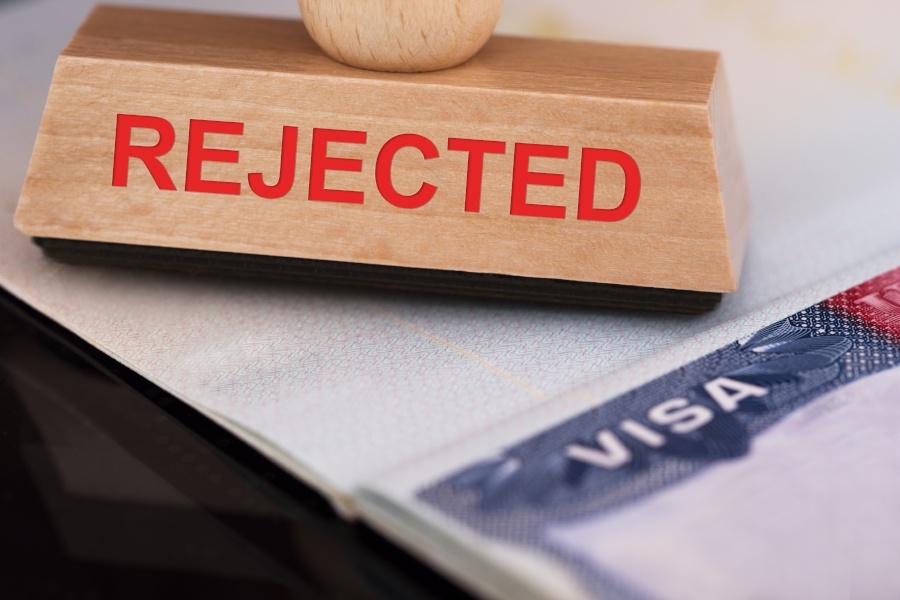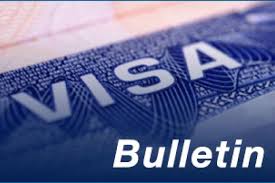 On January 31, 2020 President Trump issued a Presidential Proclamation expanding the Travel Ban enacted in 2018 to include certain foreign nationals of the following six countries: Burma (Myanmar), Eritrea, Kyrgyzstan, Nigeria, Sudan, and Tanzania.
On January 31, 2020 President Trump issued a Presidential Proclamation expanding the Travel Ban enacted in 2018 to include certain foreign nationals of the following six countries: Burma (Myanmar), Eritrea, Kyrgyzstan, Nigeria, Sudan, and Tanzania.
According to the Department of Homeland Security, these additions were based on an assessment from the Department of Homeland Security after reviewing updated security assessment criteria first established after the first iteration of the travel ban.
It should be noted that restrictions have only been placed on those seeking immigrant visas from the newly added countries. Individuals from these countries seeking nonimmigrant visas should not be restricted. The effective date of the expansion is February 21, 2020 at 12:01AM EST.
It should also be noted that the restrictions are for those seeking immigrant visas ABROAD. Those in the US, filing an adjustment application, should not face this restriction.
Updated List of Countries and Restrictions:
ERITREA: Suspends the entry of immigrants, except as Special Immigrants who have provided assistance to the U.S.government.
KYRGYZSTAN: Suspends the entry of immigrants, except Special Immigrants who have provided assistance to the U.S.government.
IRAN: Suspends the entry of immigrants and all nonimmigrants, except F (student), M (vocational student) and J(exchange visitor) visas, though they are subject to enhanced screening.
LYBYA: Suspends the entry of immigrants and temporary visitors on business or tourist visas (B-1/B-2).
MYANMAR: Suspends the entry of immigrants, except Special Immigrants who have provided assistance to the U.S.government.
NIGERIA: Suspends the entry of immigrants, except Special Immigrants who have provided assistance to the U.S.government.
NORTH KOREA: Suspends the entry of all immigrants and nonimmigrants.
SOMALIA: Suspends the entry of immigrants and requires enhanced screening of all nonimmigrants.
SUDAN: Suspends the entry of Diversity Visa immigrants
SYRIA: Suspends the entry of all immigrants and nonimmigrants.
TANZANIA: Suspends the entry of Diversity Visa immigrants
VENEZUELA: Suspends the entry of certain government officials and their family members on business or tourist visas(B-1/B-2).
YEMEN: Suspends the entry of immigrants and temporary visitors on business or tourist visas (B-1/B-2).
Scope:
Unless an exemption applies or the individual is eligible for a waiver, the travel restrictions apply to foreign nationals of the designated countries who:
(i) are outside the U.S. on the applicable effective date;
(ii) do not have a valid visa on the applicable effective date; and
(iii) do not qualify for a reinstated visa or other travel document that was revoked under Presidential Executive Order 13769.
Exemptions:
The travel restrictions in the proclamation do not apply to:
• lawful permanent residents;
• foreign nationals who are admitted to or paroled into the U.S. on or after the applicable effective date;
• foreign nationals who have a document other than a visa (e.g., transportation letter, boarding foil, advance parole document) valid on the applicable effective date or issued on any date thereafter;
• Dual nationals of a designated country who are traveling on a passport issued by a nondesignated country;
• Foreign nationals traveling on a diplomatic visas, NATO visas, C-2/U.N. visas, or G-1, G2, G-3, or G-4 visa; or
• Foreign nationals who have been granted asylum in the U.S., refugees who have been admitted to the U.S.; or individuals who have been granted withholding of removal, advance parole, or protection under the Convention Against Torture.
Waivers:
A waiver may be granted if a foreign national demonstrates to the consular officer’s or CBP official’s satisfaction that:
(a) Denying entry would cause the foreign national undue hardship;
(b) Entry would not pose a threat to the national security or public safety of the U.S.; and
(c) Entry would be in the national interest.
• Waivers may not be granted categorically but may be appropriate in the following situations:
- The foreign national has previously been admitted to the U.S. for a continuous period of work, study, or other long-term activity, is outside the U.S. on the applicable effective date, seeks to reenter the U.S. to resume that activity, and the denial of reentry would impair that activity;
- The foreign national has previously established significant contacts with the U.S. but is outside the U.S. on the applicable effective date for work, study, or other lawful activity; o The foreign national seeks to enter the U.S. for significant business or professional obligations and the denial of entry would impair those obligations;
- The foreign national seeks to enter the U.S. to visit or reside with a close family member (e.g., a spouse, child, or parent) who is a USC, LPR or lawful nonimmigrant, and the denial of entry would cause undue hardship;
- The foreign national is an infant, a young child or adoptee, an individual needing urgent medical care, or someone whose entry is otherwise justified by special circumstances;
- The foreign national can document that he or she has provided faithful and valuable service to the U.S. Government;
- The foreign national is traveling for purposes related to an international organization designated under the International Organizations Immunities Act (IOIA), traveling for purposes of conducting meetings or business with the U.S. Government, or traveling to conduct business on behalf of an international organization not designated under the IOIA;
- The foreign national is a Canadian permanent resident who applies for a visa at a location within Canada;
- The foreign national is traveling as a U.S. Government-sponsored exchange visitor; or
- The foreign national is traveling to the U.S. at the request of a U.S. Government department or agency, for legitimate law enforcement, foreign policy, or national security purposes.
For additional information regarding preparing and submitting a waiver on behalf of foreign nationals who are subject to Travel Ban please contact our office.
Please remember, as always, this blog does not offer legal advice. If you need legal advice, consult with a lawyer instead of a blog. Thank you.
 USCIS has issued an update regarding office closures due to the Covid-19 pandemic. USCIS is preparing to reopen CERTAIN offices starting June 4, 2020. To see if your local office is opening you can go to this page.
USCIS has issued an update regarding office closures due to the Covid-19 pandemic. USCIS is preparing to reopen CERTAIN offices starting June 4, 2020. To see if your local office is opening you can go to this page.
 The Department of Health and Human Services has a program to grant J-1 2 year home residency waivers for clinical care physicians. Under this program, the physician must be working in a Federally Qualified Community Health Centers (CHC), as designated by the government. Because of the current pandemic, however, and the great need for primary care physicians, HHS has decided to expand the pool of doctors eligible to apply for a waiver through HHS (this does NOT affect eligibility for such a waiver through a state HHS agency).
The Department of Health and Human Services has a program to grant J-1 2 year home residency waivers for clinical care physicians. Under this program, the physician must be working in a Federally Qualified Community Health Centers (CHC), as designated by the government. Because of the current pandemic, however, and the great need for primary care physicians, HHS has decided to expand the pool of doctors eligible to apply for a waiver through HHS (this does NOT affect eligibility for such a waiver through a state HHS agency). The biggest news this month is that the EB-1 category came current for Most Countries (but not all). Additionally, the EB-2 category remained current. Otherwise, there was movement but not much in terms of surprises. Mr. Oppenheim did ensure us that the Visa Bulletin is being processed based upon the same infomration in the past during this difficult time. However, as he is working remotely, he did not have access to the necessary databases when talking with AILA this month, so was unable to make precise predictions. Details are below:
The biggest news this month is that the EB-1 category came current for Most Countries (but not all). Additionally, the EB-2 category remained current. Otherwise, there was movement but not much in terms of surprises. Mr. Oppenheim did ensure us that the Visa Bulletin is being processed based upon the same infomration in the past during this difficult time. However, as he is working remotely, he did not have access to the necessary databases when talking with AILA this month, so was unable to make precise predictions. Details are below:
 As most, if not all, of you, have heard, our President is preparing an executive order to limit immigration into the United States. At this time, as the order has not been finalized, we cannot say what the impact will be on individual cases. Below is a list of what we have heard may, or may not, be included in the order:
As most, if not all, of you, have heard, our President is preparing an executive order to limit immigration into the United States. At this time, as the order has not been finalized, we cannot say what the impact will be on individual cases. Below is a list of what we have heard may, or may not, be included in the order: This past month’s Visa Bulletin had some bright spots and not so bright spots. The biggest news is that the EB-2 category remained current and most likely will remain current next month as well. Additionally, the EB-3 category was backlogged worldwide – and will most likely remain that way for the rest of the fiscal year (and, hopefully come back to current in October of this year). Details are below:
This past month’s Visa Bulletin had some bright spots and not so bright spots. The biggest news is that the EB-2 category remained current and most likely will remain current next month as well. Additionally, the EB-3 category was backlogged worldwide – and will most likely remain that way for the rest of the fiscal year (and, hopefully come back to current in October of this year). Details are below: On January 31, 2020 President Trump issued a Presidential Proclamation expanding the Travel Ban enacted in 2018 to include certain foreign nationals of the following six countries: Burma (Myanmar), Eritrea, Kyrgyzstan, Nigeria, Sudan, and Tanzania.
On January 31, 2020 President Trump issued a Presidential Proclamation expanding the Travel Ban enacted in 2018 to include certain foreign nationals of the following six countries: Burma (Myanmar), Eritrea, Kyrgyzstan, Nigeria, Sudan, and Tanzania.